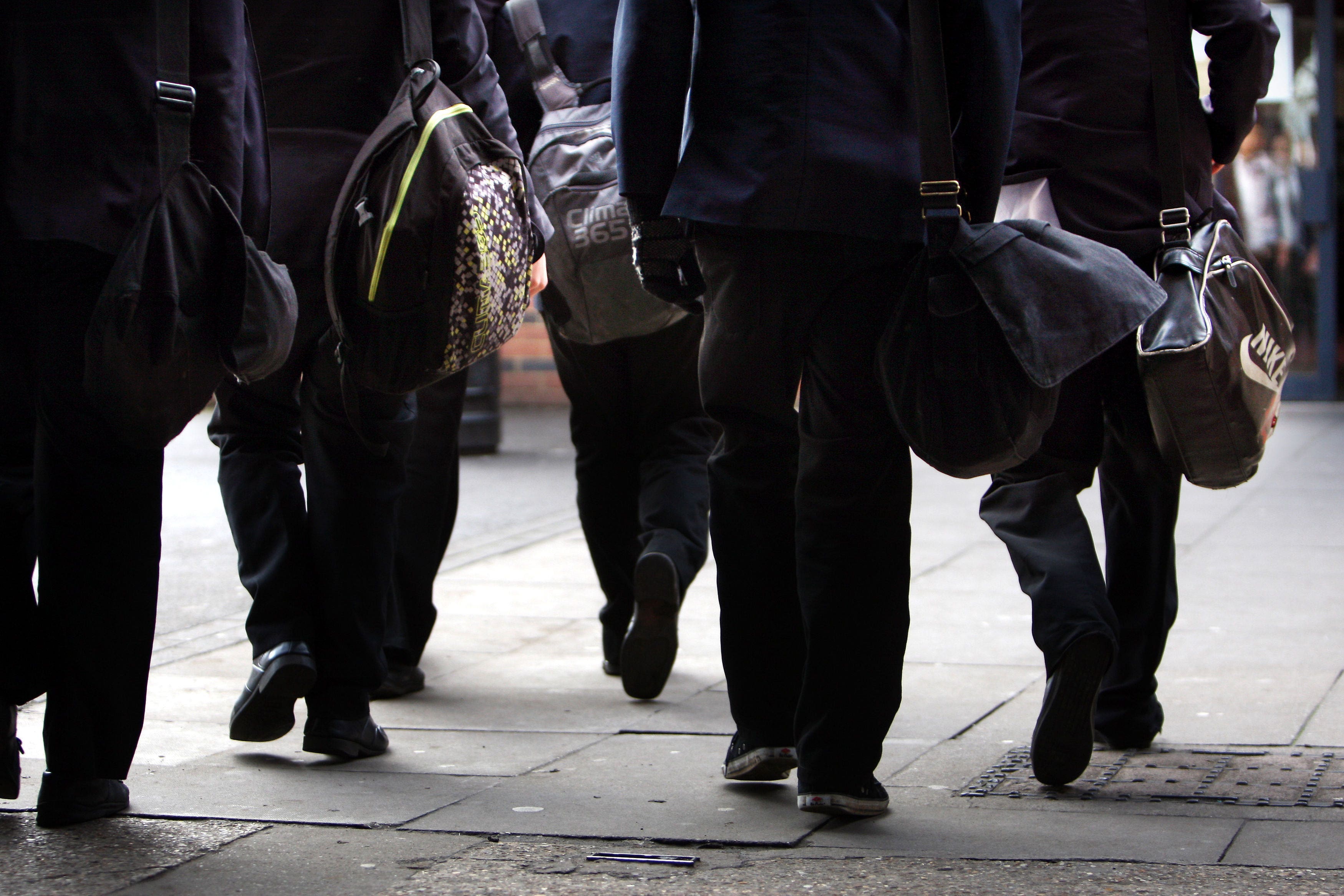Generation of children could face damaged prospects without swift action – MPs
A report warned it may take a decade for the attainment gap between disadvantaged pupils and their peers to return to pre-pandemic levels.

Your support helps us to tell the story
From reproductive rights to climate change to Big Tech, The Independent is on the ground when the story is developing. Whether it's investigating the financials of Elon Musk's pro-Trump PAC or producing our latest documentary, 'The A Word', which shines a light on the American women fighting for reproductive rights, we know how important it is to parse out the facts from the messaging.
At such a critical moment in US history, we need reporters on the ground. Your donation allows us to keep sending journalists to speak to both sides of the story.
The Independent is trusted by Americans across the entire political spectrum. And unlike many other quality news outlets, we choose not to lock Americans out of our reporting and analysis with paywalls. We believe quality journalism should be available to everyone, paid for by those who can afford it.
Your support makes all the difference.The prospects of a “generation of children” could be damaged by the impact of the Covid-19 pandemic unless the Government takes faster and more effective action, MPs have said.
The Public Accounts Committee (PAC) said it is “alarming” that it may take a decade for the gap in attainment between disadvantaged pupils and others to return to pre-pandemic levels.
The cross-party group said it shares the “disappointment” with the Government that 13% of schools in England did not take up its flagship National Tutoring Programme (NTP) in 2021/22.
In the report, the group said it is “not confident” that schools will be able to afford to provide the tutoring required to support all pupils who need it once the Government withdraws its subsidy.
The Department for Education (DfE) subsidised 75% of the costs that schools incurred for delivering the NTP in 2021/22, and this reduced to 60% this year.
Without the Department for Education taking faster and more effective recovery action, the legacy of the Covid-19 pandemic will be with us for a long time, damaging the prospects of a generation of children and entrenching disadvantage
The DfE originally planned to fund 25% of the cost of the NTP in 2023/24, but it upped it to 50% following concerns about budget pressures.
The committee said: “There is a risk that without this central subsidy, the National Tutoring Programme will wither on the vine.
“We are not convinced that the department fully appreciates the pressures schools are under as they seek to help pupils catch up.”
The committee called on the DfE to take more effective action to increase participation in the NTP to ensure “all pupils get the support they need”.
It also called on the DfE to take targeted action to reduce absence rates among disadvantaged pupils and to publish a plan on how it will reduce the disadvantage gap.
The report said: “Without the Department for Education taking faster and more effective recovery action, the legacy of the Covid-19 pandemic will be with us for a long time, damaging the prospects of a generation of children and entrenching disadvantage.
“The disruption to schooling was one of the most serious consequences of the pandemic, leading to lost learning for many pupils.
“Disadvantaged pupils suffered most, wiping out a decade of progress in reducing the gap in attainment between them and their peers.
“We are alarmed that the department believes it could take a decade more to return the disadvantage gap to pre-pandemic levels.”
Labour MP Dame Meg Hillier, chair of the committee, said: “The DfE does not seem to appreciate the pressures schools are under as they seek to help pupils catch up amid funding constraints, challenges in recruitment and retention for staff, and growing mental health needs for pupils.
“It is therefore essential that Government reckons with the reality of the situation and publishes focused plans on reducing the disadvantage gap and absence rates.
“The consequences of a lost decade in progress narrowing the gap in attainment for disadvantaged children are immeasurable.
“Without swift action, the slow-motion catastrophe of the pandemic for children’s education, and in particular for disadvantaged children, will continue to have far-reaching consequences for an entire generation.”
Julie McCulloch, director of policy at the Association of School and College Leaders (ASCL), said: “The link between poverty and educational attainment is clear and long-standing.
“Even before the pandemic, the rate of progress in closing the disadvantage gap moved at a snail’s pace because of the lack of a concerted government strategy and investment. We are now further away than ever from solving this problem.
“The committee’s assertion that the Department for Education does not appreciate the pressures facing schools is a damning indictment of the department’s failure to listen to the evidence that ASCL and a host of other organisations have repeatedly set out to ministers and officials in forensic detail.”
A DfE spokesperson said: “We are conscious of the effect the pandemic has had on pupils’ education which is why we have made £5 billion available for education recovery.
“Despite the effect of the pandemic, England came fourth out of 43 countries that tested children of the same age in the PIRLS international survey of the reading ability of nine and 10-year-olds.
“We remain committed to addressing the attainment gap which is why the National Tutoring Programme is targeted at the most disadvantaged students and has had over three million course starts to date, backed by more than £1 billion investment.”